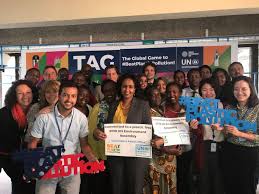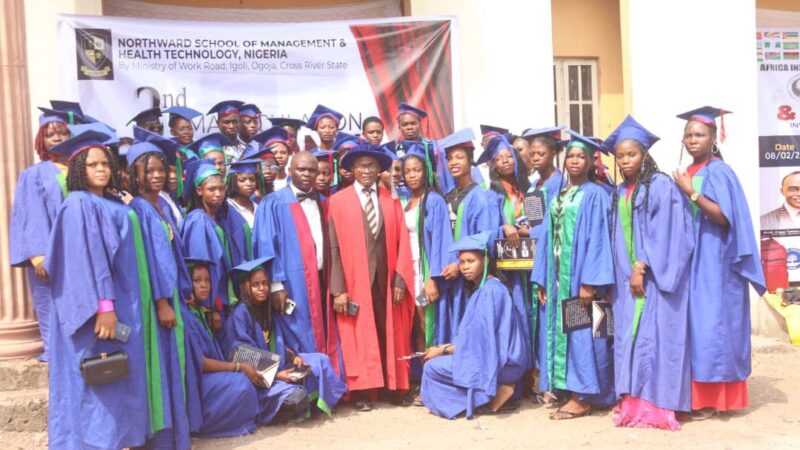Battling Plastic Contamination: What Ghana Must Do As the World Denotes the 2019 Earth Day

One of the dangerous ecological difficulties on the earth that wrecks its normal assets at a disturbing rate in this 21st Century is plastic contamination. There is an inescapable utilization of plastics for local, modern and business exercises. It is assessed that consistently, on a worldwide scale, people create more than 350 million tons of plastic waste. It is assessed that 33% of the worldwide plastic squanders is from the bundling of items. These plastics are extremely hard to break down and winds up being frequenting apparitions to the lives of people. The disintegration life expectancy of a considerable lot of these plastics extend from 50 years to 600 years! Tragically, a considerable lot of these plastics wind up being exceptionally ruinous, crushing our streams, seas, woods and organic decent varieties. The wellbeing outcomes of plastic squanders to human and creature life can’t be belittled. The inward breath of consumed plastic squanders causes different respiratory illnesses that remove a few lives at soaring rates than the fatal HIV/Helps. Immediate and circuitous ingestion of plastic toxins in water bodies results in moderate strangulation, Amoebic Loose bowels, Giardiasis and other life-taking maladies. Because of the staggering idea of plastic contamination, numerous worldwide bodies, preservation organizations and governments are considering gainful techniques in capturing it.
The ulcer of plastic contamination is so extraordinary in creating nations like Ghana. Beside the privately created plastic toxins, Ghana imports more than 100, 000 metric huge amounts of plastic items consistently. A considerable lot of these plastics end up damaging contaminations in the Ghanaian condition. Ghana needs to strategize methods for capturing the ulcer of plastic contamination. One path is to sharpen the Ghanaian people of the antagonistic wellbeing ramifications of plastics through natural training programs. The broad communications ought to be entrusted by the Service of Condition, Science, Innovation and Advancement to complete plastic contamination sharpening and training programs. The administration must chop down the importation of plastic items, while prohibiting totally, plastic items with a high level of cell reinforcements. Enormous battle on the utilization of biodegradable materials as options in contrast to plastics must be heightened. Sustenance preparing organizations and cheap food sellers must be occupied with discoursed to begin utilizing biodegradable or natural bundles for their nourishments. Incredible exercises can be gained from the biodegradable leaf plates utilized in India now. Sustenance researchers and architects must be helped through financing to create and deliver reasonable privately produced biodegradable bundles for their nourishments.
Another advance method for fighting plastic contamination in Ghana is to support the reusing of plastic squanders into innovative and usable items. This would change the fatal plastic poisons into financial increases for the nation. Mechanical offices in the Ghanaian instructive organizations and additionally intrigued organizations must be helped to take part in concentrated reusing undertakings of plastics. Exercises can be gained from the EcoDomum Organization in Mexico that takes part in the generation of lodging items through the reusing of plastics. Craftsmen who take part in establishment craftsmanship and other creative masterful undertakings utilizing plastic squanders must be helped through government subsidizing. Furthermore, the administration of Ghana should obligatorily educate organizations that create a considerable lot of the plastic toxins to discover methods for reusing their plastic squanders or hazard being bankrupt. Duties on the importation of apparatus for the reusing of plastics must be cleaned off or decreased to empower nourishment and drink creating organizations in Ghana to reuse their plastic squanders.
The polluter pay arrangement must be improved through the raising of the fiscal punishment or fines, particularly for plastic squanders. This would expand the strong idea of government laws on plastic contamination. The Ecological Security Organization must utilize clean monitors entrusted with the obligation of announcing people, families or ventures that contaminate the earth through their plastic squanders and improperly arrange their plastic squanders so they will be indicted. The legislature should set a law as a feature of the ecological laws to capture and arraign all people who aimlessly toss plastic squanders onto Ghanaian boulevards, canals, etc. The legislature of Ghana must team up with the customary experts in the different Ghanaian people group and errand them with the obligation of setting and authorizing natural by-laws to battle the plastic contamination hazard in their particular purviews. A few nations are currently subsidizing logical examinations gone for producing Hereditarily Altered Living beings that can deteriorate plastics at generally quicker time ranges, inside weeks by benefiting from them. Ghana can consider subsidizing comparable investigations, all went for battling the blister of plastic contamination.
This is the time that Ghana must clasp hands with the world in battling against the plastic contamination ulcer. The legislature of Ghana must diminish the importation of plastics; advance the utilization of biodegradable materials, particularly as bundles for items, while subsidizing ventures for reusing plastic squanders and age of GMO’s for expending plastic squanders. Likewise, the legislature must augment natural laws and arraignment identified with plastic contamination while heightening ecological instruction on the risks related with plastic contamination. These methodologies would help spare the Ghanaian condition, spare the earth which is the home and the everlasting fortune for every single organic specie.






